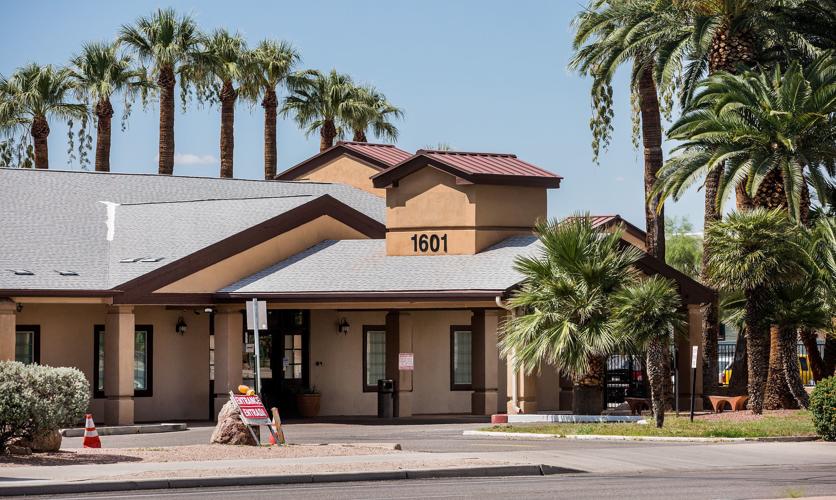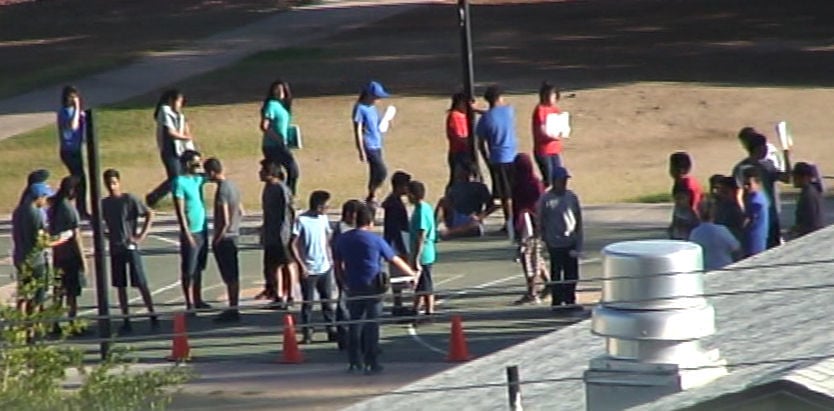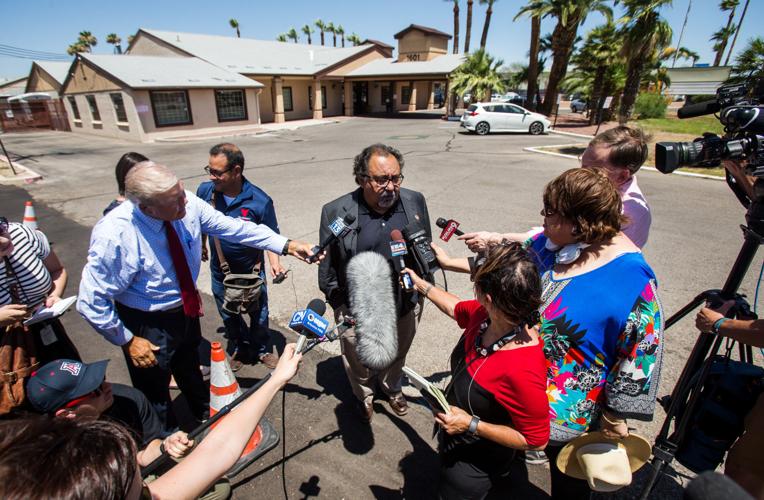Overseeing the network of shelters for immigrant children — and ensuring the minors’ well-being — is a constant challenge for the government.
Researchers have written in report after report about a lack of transparency and of inconsistent monitoring that put children at risk, with conditions varying greatly.
While the Women’s Refugee Commission, in a 2009 report, commended Health and Human Services for its work, researchers said the ineffective system prevented the federal government from identifying facilities that were noncompliant and spotted warning signs.
Over the years, there have been issues with both abuse at the shelters where the minors are initially housed and with the sponsors they are ultimately placed with. Neither seems to be new. A 1997 lawsuit filed in Tucson alleges a 6-year-old boy was molested at the Coolidge facility that year.
- Levian Pacheco, a former Southwest Key youth care worker in Mesa, was convicted Friday for abusing at least eight boys over an 11-month-period. ProPublica reported he worked for four months without a background check.
- Another Arizona staffer was arrested and charged with molesting a 14-year-old girl this year, The Arizona Republic reported.
- A 6-year-old girl who was separated from her mother this summer was fondled twice by another child at a migrant shelter in Glendale.
Locally, nearly 100 Tucson Police Department reports reviewed by the Arizona Daily Star show at least three especially serious cases at Southwest Key’s Estrella del Norte shelter here:
- Oscar Trujillo was convicted last year of sexual abuse and sentenced to three years’ probation for touching a 15-year old boy in his genital area over his clothing and trying to pull down his pants inside the teen’s room in 2015.
- A 17-year-old Honduran boy who arrived at the Tucson shelter in February 2017 told the Department of Child Safety that after he had surgery on his knee, and while recovering and still on pain medication, he woke up and saw a staffer standing next to his bed and talking about his penis. Another time, the staff member reached for the video game controller and his hand brushed his genitals. The teen initially denied the allegations because he was afraid he would have to stay at the facility. The investigation is ongoing.
- In 2015, two female employees told managers that a maintenance supervisor had groped them. The company made an internal sexual harassment investigation and didn’t find anything. The maintenance supervisor denied the accusations and ultimately the case was closed because it was his word against that of the female employees.
Other reports point to allegations of inappropriate relationships with staff, sexual contact among minors and bullying.
In one case from 2015, a K’iche’ — a Guatemalan dialect — speaker complained that another teen would pull his pants down and hit his genitalia and that it had been happening over several days. The Department of Child Safety was called. Shelter workers said they would separate the teens and that the alleged perpetrator would have staff with him 24 hours a day.
In another case, a 16-year-old boy was accused of hugging a 17-year-old girl from behind and appearing to grab her breasts on several occasions. The girl didn’t press charges, and the manager told officers she would ensure the victim and suspect were away from each other.
Often, it was up to the minors whether they wanted to press charges. Only a few did.
Other incidents involve horseplay or minor allegations, such as a teen patting a 16-year-old boy on the buttocks “as if it were in a congratulatory manner” during karaoke night.
In another, a staffer “hugged (the child) with one hand and with the other lightly tapped (the minor) on the butt,” when the 6-year-old was playing with her. The employee said “she was acting like she was spanking him” because he had misbehaved.
The reporting individual didn’t think there was anything sexual about it, but told officers they have to report everything, “even if they just give one of the kids a hug, they have to document it.”
But former and current employees point to inconsistencies in how incidents are handled.
“If there’s bullying, we separate them,” a current employee said, “but then there are cases where a girl is being harassed by a boy in class and nothing happens. I don’t know how things fall through the cracks.”
Neither the government agencies involved nor Southwest Key agreed to interview requests.
In an interview with NPR, Juan Sanchez, Southwest Key’s CEO, said the company self-reports allegations and, “If any allegation involves a staff member, we immediately suspend the staff member so they are out of the program, and we turn over the investigation to child-care licensing.”
The Office of Refugee Resettlement wrote in an email that any allegation of abuse or neglect is taken seriously and aggressively investigated.
“Whenever appropriate, swift action is taken to address violations of policy, including initiating employee disciplinary action, termination, and reporting to law enforcement agencies and any relevant licensing bodies.”
State role is limited
The shelters are licensed by state agencies, but the state is only responsible for making sure the shelters comply with licensing requirements.
Since Southwest Key opened its shelter in Tucson, the Arizona Department of Health Services has conducted on-site investigations three times — twice in response to complaints and once when it applied to increase capacity.
One of the complaints from 2015 alleged children had been victims of molestation, that because of a lack of local care, UACs (unaccompanied alien children) have spread chagas disease, and that the facility was infested with lice. It was also alleged that the minors shared undergarments and received inappropriate food.
ADHS found the allegations to be unsubstantiated. While there had been a minor who reported inappropriate touching, the agency said police were immediately called and the employee was suspended and later fired.
After recent media reports of sexual abuse, the agency investigated all Southwest Key facilities and “was unable to substantiate multiple complaints regarding overcapacity, failure to report to law enforcement, staff qualifications, and the safety and care of children at Southwest Key,” Director Cara Christ wrote in a report to Gov. Doug Ducey.
But it discovered problems with employee background checks, especially in Tucson, where inspectors found eight employees were late in applying for background checks.
A 2016, the Government Accountability Office report found lapses in reporting and oversight, including required documents being missing and facilities going years without a monitoring visit. It recommended that monitoring be ongoing and “ingrained in the agency’s operations.”
In a written statement, the Office of Refugee Resettlement said it has hired additional staff and put monitoring protocols in place to meet bi-annual, on-site monitoring schedules since the report was issued. Shelters are also required to provide monthly and quarterly reports and file significant-incident reports describing what happened and their response.
Lack of transparency
A lack of transparency troubles many, and advocates and researchers point to a long-standing lack of access for outside groups, including elected officials and the press.
Shelter tours have been arranged, but only in a tightly controlled environment where participants can’t talk with the children and photographs aren’t allowed.
The Star was able to enter Southwest Key in 2015, but only after Tucson City Councilman Steve Kozachik insisted that a member of the media be present. Even so, the tour had to be done under the condition that it would be off the record, with questions answered later by an official in Washington, D.C.
“The fact we are talking about children is used as a further means of avoiding accountability,” said Michael Boschenk, with Human Rights Watch, echoing a point the group made in 1997.
“Suddenly child-protection and privacy concerns are instrumentalized, not to protect kids’ privacy but to shield the institution from scrutiny.”






